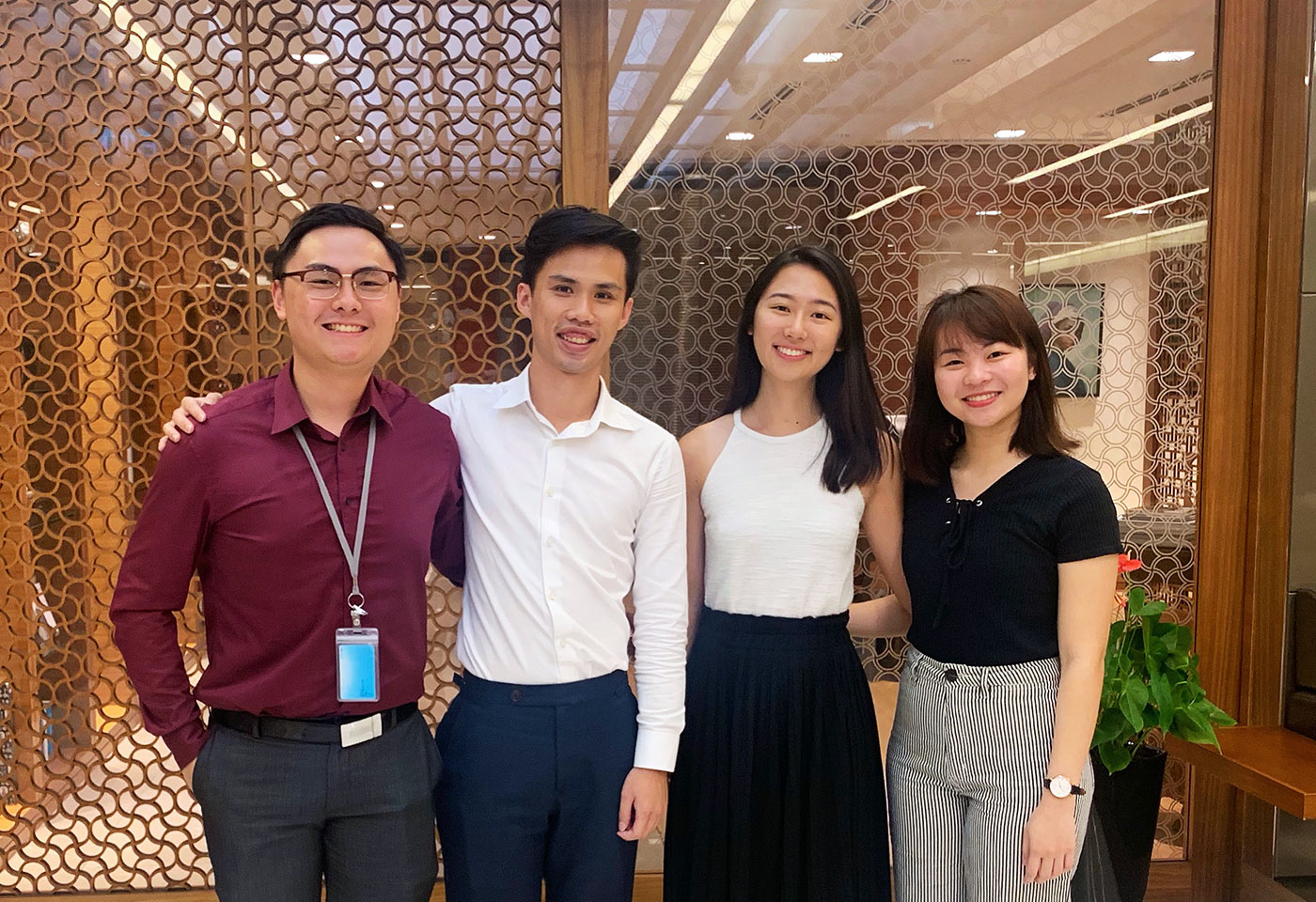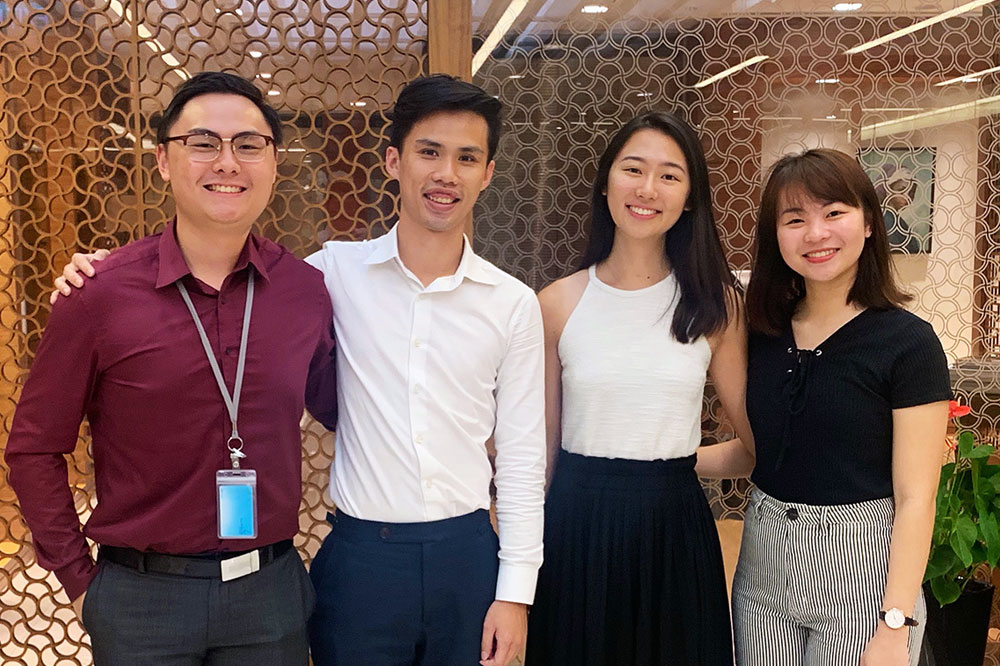Jeremy graduated from NUS BBA in 2017 with a major in Finance. He enjoys backpacking in Southeast Asia on a budget and he firmly believes in living life to the fullest. He was very involved in campus life and other co-curricular activities during his stint in NUS, like Uni-YMCA and NUS Investment Banking Club.

Alumni Spotlight Stories: Han Yuh Ding, Jeremy

Q: Could you tell us your most memorable times during your university days?
The most memorable moment was when I took up a Leave of Absence (LOA) to embark on a Corporate Finance internship in Cambodia. I can still recall lugging my 30-kg luggage in a blazer and navigating through the tuk-tuks on the road under the sweltering heat. Being an emerging market, I was able to gain valuable insights during my stint in Cambodia which I wouldn’t have possibly gotten in Singapore. My role comprised data collection, financial modelling and preparation of pitch decks to support the senior bankers in the origination and execution of transactions. I was fortunate to be able to attend client meetings, which was very rare for an intern. The one that stood out for me the most was a meeting with the senior management team of a top local bank, whom we were advising on various capital raising options.
Q: Please talk about your start at Standard Chartered.
I joined Standard Chartered’s Graduate Programme as an International Graduate (IG), after getting a conversion from my summer internship with the bank. The IG Programme starts off with a month-long training in Shanghai, followed by numerous rotation stints that last for a year in total. As a Global Banking IG, I am required to complete my rotations throughout various functions in the bank (Global Banking, Corporate Finance, Financial Markets and Transaction Banking). The rationale is to give IGs are holistic view of the bank, which will help immensely when you get placed in your permanent role after the Programme. (Jeremy is now Associate, Commercial Real Estate).
While it is important to gain relevant banking experience, I believe one should also strive to develop broad skill sets and pursue their own interests.
Q: What is your definition of success?
Success to me is not about earning a five-figure starting salary, nor is it about being able to afford a luxurious life. I would consider myself leading a successful life if I am able to value-add to the people around me, be it friends, colleagues or even clients for that matter.
Q: Did you receive any mentorship?
Definitely. I would not be able to be where I am today if not for the mentorship and guidance that I have received from the people around me during my university days. The first person that comes to my mind is Mr. Adrian Wu from NUS Business Career Services Office. I remember approaching him as a clueless Freshman and telling him that I wanted to work in an investment bank, without even knowing what an investment bank really does at that point in time. He gave me a reality check and told me to be better prepared by our next meeting. That gave me the wake-up call that I sorely needed, and he provided me with a lot of guidance throughout the next few years when I was in NUS – from resume writing techniques to interviewing tips and networking skills. It helped me a lot when I was applying for internships, and that led me to securing a role in Standard Chartered’s IG Programme even before I graduated.
Q: Do you have any advice for undergraduates who are keen on working in the banking sector?
It’s getting more and more competitive these days in the banking sector, with undergraduates stacking up numerous banking internships on their resumes to look more “employable”. While it is important to gain relevant banking experience, I believe one should also strive to develop broad skill sets and pursue their own interests. More often than not, I realised that interviewers were more interested in my experience working at a start-up (context: I did an internship with a start-up in my freshman year), as well as my backpacking experience around Southeast Asia when I was applying for internships and jobs.
I would say that banks generally fill their graduate roles mostly from the class of summer interns and a common route to break into the banking sector is to achieve a conversion from a summer internship. Everyone has their own opinion of what an ideal intern should be, so I will just share what I think worked for me in getting a return offer after my summer internship with Standard Chartered. 1. Being proactive and showing a keen interest in the work that I did. 2. Being a team player and supporting my colleagues in the team by helping them out in any way possible. 3. Staying positive under all circumstances.
Lastly, networking is extremely essential in the banking sector, and till this day I am still trying to work on my networking skills as I am an introvert by nature. It takes time and practice to sharpen these skills, and I would humbly suggest that one approach networking with the view of building meaningful and genuine relationships.
The Alumni Spotlight Stories is a weekly series that explores a Bizad alumni’s journey from school to the working world. The story was first published in “Alumni Spotlight Stories: From Student Life to the Peak of your Career” compiled by the NUS Business School Alumni (NUSBSA).


